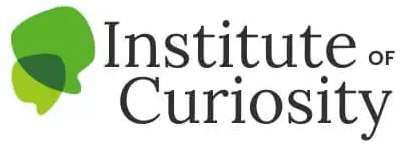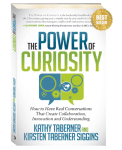Picture this: you leave a meeting feeling drained. A colleague cut you off, dismissed your idea, and the whole conversation felt like an uphill battle. On the way back to your desk, your mind replays the scene on a loop: “Why can’t they just listen? Why do they always have to be so difficult?”
It’s a familiar response under pressure, and it also points to a deeper truth. When pressure rises, most of us zero in on the other person: how they need to change or do things differently.
But here’s the thing: when your focus is solely on others, you give away your power to change the situation and lose access to the one thing you can influence: your own awareness, choices, and responses.
And when you surrender that power, performance slips, relationships strain, and stress takes the wheel.
The good news? You have more influence in those moments than you realize.
Why Self-Awareness Under Stress Improves Relationships and Performance
Think back to that meeting. Your colleague cut you off and dismissed your idea. Maybe your jaw tightened, or your shoulders tensed. You felt this tightening and knew something was just not quite right. That’s self-awareness at work, the ability to notice what’s happening inside you when pressure hits.
These reactions often come from good intentions; wanting to protect yourself, perform well, or avoid conflict, but they can also create unintended consequences. Snapping back, shutting down, or stewing in silence all shift the tone of the room.
Here’s the shift: when you change how you show up, the entire dynamic changes.
Stress and Performance: 3 Key Insights
Stress doesn’t just influence how you feel; it directly impacts how you think, act, and connect with others. Back in that meeting example, notice how quickly stress shaped your behavior. These three truths explain why:
1.You can never think greater than how you feel.
If you leave the room burned out or frustrated, your capacity to problem-solve, innovate, or connect is already capped. Your emotional state sets the ceiling for your performance.
2.Discomfort reveals your biggest opportunities for growth.
Feeling cut off or dismissed is uncomfortable, and it’s also a goldmine for self-awareness and growth. Your stress habits surface in these moments. If you pause to notice them, you can choose a new response
3.Adaptability requires ongoing self-development.
The old habit of replaying the scene and blaming the other person won’t serve you. What will? Curiosity and a willingness to experiment with new ways of showing up in moments of tension.
Self-Awareness Questions to Ask Under Stress
The next time a meeting {or any situation} leaves you frustrated, instead of replaying what others should have done differently, pause and ask yourself:
- If I could change one thing about how I showed up just now, what would it be?
- What would that shift give me?
- And what’s stopping me from showing up that way right now?
These questions open the door to growth. They put you back in the driver’s seat, where you can influence connection, collaboration, and outcomes.

Building Emotional Intelligence and Resilience at Work
Stress will never disappear. But your ability to navigate it can change everything. When you choose curiosity and strengthen emotional intelligence, you don’t just transform your own experience; you reshape how others experience you.
Imagine walking out of that same meeting calm, grounded, and open instead of drained and defensive. That’s the difference self-awareness under stress makes.
If you’re ready to uncover blind spots, strengthen relationships, and lead with greater impact, explore our EI assessment and coaching programs designed to help professionals thrive under pressure.
Stress is inevitable. Reactivity is optional. Growth is your choice.





